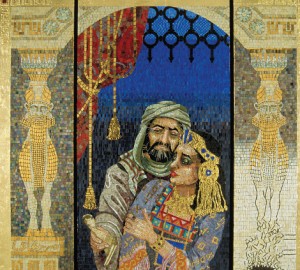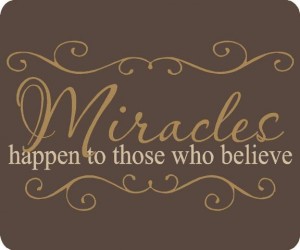Purim is not the Jewish Halloween. This is a common misconception because Purim does involve dressing up. Yet, it is not only a fun-filled holiday. It actually teaches profound lesson. One of them can be found through an exercise in Jewish numerology.
A Secret Message in the Numbers
Numbers have great importance in Judaism. Seven is holy because God created the world in seven days. Three is holy because the world is sustained by three things: study, prayer and acts of lovingkindness.
Numbers used in the Bible can also teach important lessons. One lesson emerges in a description of the central character of the Jewish holiday of Purim. Her name is Esther. At the beginning of the biblical Book of Esther, we learn that the area in which she and the King ruled included “127 provinces.”
On the surface, the number 127 does not seem important. Yet, the Jewish sages pointed out that this is not the only time we see the number 127 in the Bible. Back in the book of Genesis, we learn that Sarah, the wife of Abraham, lived to age 127. Is there a connection between Sarah and Esther?
Absolutely. The connection is two-fold.
1. Sarah and Esther lived each day to their fullest: The sages arrived at this conclusion because of the way the Bible describes the end of Sarah’s life. When she dies, the text says “127 were the years of the life of Sarah.” The grammar is odd. It could have just said Sarah was 127 years old when she died.
The odd grammar, however, is meant to teach a lesson. The Bible uses the odd sentence structure “the years of the life of Sarah” to emphasize that every one of those years was full of life. She made each day count.
She knew the truth of words uttered by Steven Carr Reuben, “The most important challenge is not learning how to live after death, it’s learning how to live after birth.” Like Sarah and Esther, we try to make each day count.
2. God is ever-present: The Book of Esther is unique amongst the books of the Bible. God is never mentioned. Unlike every other book, where Goes plays an active role in the narrative, God does not appear. How is this possible?
The best clue to finding the answer is in Esther’s name. The Hebrew word Hester means hidden. God is never absent, but sometimes God feels hidden. God feels absent.
Yet, God is never truly absent. By linking Esther with Sarah, for whom God was frequently present, the text is revealing the Divine role. God is as present for Esther–and for us–as He was in the days of Abraham and Sarah. Sometimes what matters most is hidden in plain sight.
To receive Rabbi Moffic’s weekly digest of Jewish wisdom, click here.


